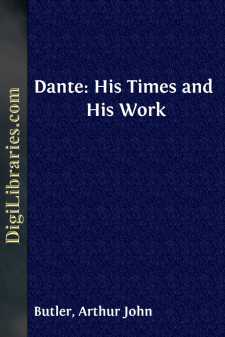Non-Classifiable
- Non-Classifiable 1768
Non-Classifiable Books
Sort by:
by:
George Sharswood
INTRODUCTION. The dignity and importance of the Profession of the Law, in a public point of view, can hardly be over-estimated. It is in its relation to society at large that it is proposed to consider it. This may be done by showing its influence upon legislation and jurisprudence. These are the right and left hands of government in carrying out the great purposes of society. By legislation is meant...
more...
SPOOL KNITTING Few elementary exercises have aroused more interest in the child than the toy knitting; due, perhaps, to its simplicity and his power to do it easily and well. To some keen observer the little orb-weaving spider may have suggested this form of occupation. Be this as it may, the child who is a lover of nature will be quick to perceive the strong resemblance he bears to this little insect...
more...
PREFACE This little book is mainly compounded of papers which appeared, part in the Monthly Packet, and part in the Magazine of the Home Reading Union. It will be seen, therefore, that it is not intended for those whom Italians call “Dantists,” but for students at an early stage of their studies. To the former class there will be nothing in the book that is not already familiar—except where they...
more...
THE IDEA OF PROGRESS F. S. Marvin The editor of these essays was busy in the autumn of last year collating the opinions attached by different people to the word 'progress'. One Sunday afternoon he happened to be walking with two friends in Oxford, one a professor of philosophy, the other a lady. The professor of philosophy declared that to him human progress must always mean primarily the...
more...
by:
William James
The lectures that follow were delivered at the Lowell Institute in Boston in November and December, 1906, and in January, 1907, at Columbia University, in New York. They are printed as delivered, without developments or notes. The pragmatic movement, so-called—I do not like the name, but apparently it is too late to change it— seems to have rather suddenly precipitated itself out of the air. A...
more...
by:
Edith A. How
1. The Country and its River Egypt is a country in the north of Africa. It has sea to the north and sea to the east. On the north it is called the Mediterranean Sea, and on the east the Red Sea. On the west is the great sandy desert called the Sahara, and to the south are great forests and mountains. Egypt itself is the land of the great River Nile. There is very seldom any rain there, and everyone has...
more...
by:
Giles Gossip
§ 1. ANECDOTES OF THE REGALIA AND ROYAL VESTMENTS. "History—the picture of man—has shared the fate of its original. It has had its infancy of Fable; its youth of Poetry; its manhood of Thought, Intelligence, and Reflection."—Anon. No. 1. The Regal Chair. The Regalia of England are the symbols of a monarchical authority that has been transmitted by coronation ceremonies for upwards of ten...
more...
by:
Revel Hession
INTRODUCTION By NORMAN P. GRUBB,Hon. Secretary of the Worldwide Evangelization Crusade, London I am sure from my own experience, as well as from what we have seen in the ranks of our Mission these last three years, that what the authors tell us about in these pages is one of God's vital words to His worldwide church today. For long I had regarded revival only from the angle of some longed for, but...
more...
by:
R. J. Broadbent
CHAPTER I. Origin of Pantomime. From the beginning of all time there has been implanted in the human breast the Dramatic instinct full of life and of vigour, and finding undoubtedly its outlet, in the early days of civilization, if not in the Dramatic Art then in the poetry of motion with that necessary and always essential concomitant of both—Pantomime. Indeed, of the Terpsichorean Art, it has been...
more...
by:
Charles Darwin
INTRODUCTION. THE chief object of the present work is to describe and connect together several large classes of movement, common to almost all plants. The most widely prevalent movement is essentially of the same nature as that of the stem of a climbing plant, which bends successively to all points of the compass, so that the tip revolves. This movement has been called by Sachs "revolving...
more...











